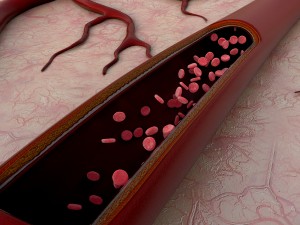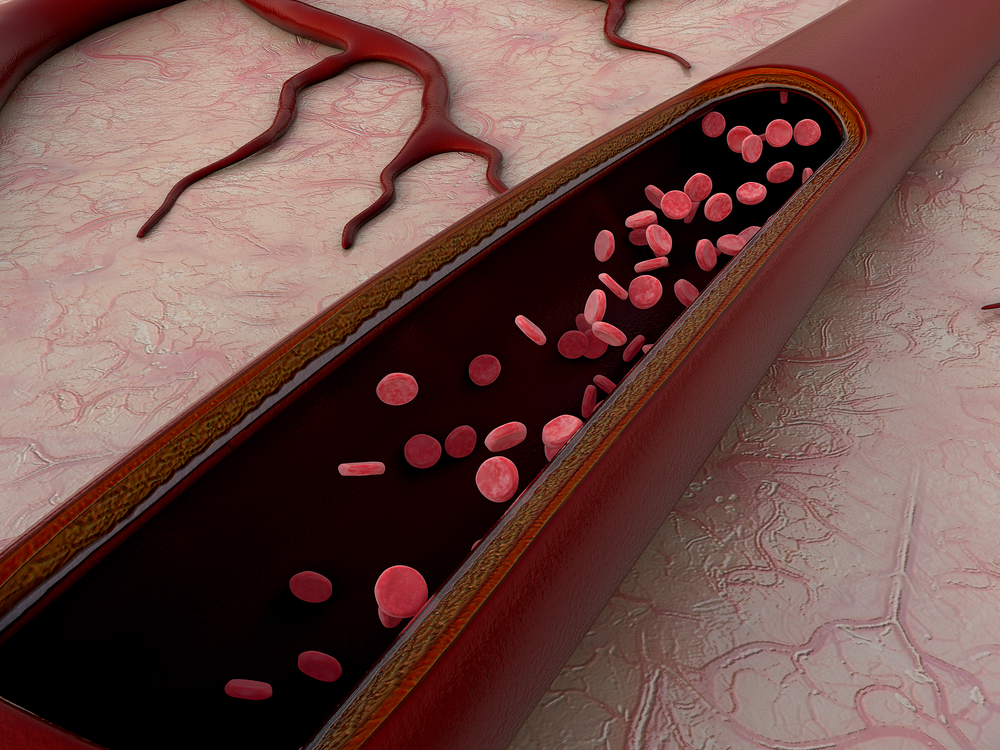 Scientists from Bristol and Nottingham Universities have found that a single molecule plays a major role in the angiogenesis (formation of new blood vessels) of prostate cancer.
Scientists from Bristol and Nottingham Universities have found that a single molecule plays a major role in the angiogenesis (formation of new blood vessels) of prostate cancer.
The study “Serine–arginine protein kinase 1 (SRPK1) inhibition as a potential novel targeted therapeutic strategy in prostate cancer” published in the Oncogene journal and led by Dr. Sebastian Oltean from Bristol University and Dr. David Bates, Professor of Oncology in The University of Nottingham’s Cancer Biology Unit, could be the base for future drug development to improve the long-term control and prognosis for prostate cancer patients.
“This work opens up a new avenue for drug development for prostate cancer. This is a new target, and we believe we will be able to make drugs that hit this target in those patients that can benefit, with prostate cancer, and potentially other cancers too,” said Professor Bates in a Nottingham University press release.
The team found that a molecule called SRPK1 could be targeted to stop prostate cancer progression, since it plays a crucial role in angiogenesis, a vital process for the adequate delivery of nutrients and oxygen to tumors.
Furthermore, researchers found that SRPK1 is involved in the regulation of vascular endothelial growth factor (VEGF), one of the most essential molecules in angiogenesis, which depending on the splicing of its gene can either activate or inhibit the formation of new blood vessels.
In this study, the team analyzed prostate patient’s samples, focusing on samples that had high levels of VGEF expression, using cells from bone metastases to study the mechanism of VEGF in tumor formation. The team observed that prostate cancer cells could produce proangiogenic VEGF, and that SRPK1 expression increased as the cancer got more aggressive.
“We reasoned that inhibition of SRPK1 activity could stop cancer progression. Indeed, we show in this paper that if we decrease SRPK1 levels in prostate cancer cells, or in tumours grafted into mice, we are able to switch VEGF splicing and therefore inhibit tumour vasculature and growth,” Dr. Sebastian Oltean, said in a Bristol University press release.
The team successfully developed a compound able to switch the production of VEGF from its proangiogenic form to the anti-angiogenic form, this way inhibiting the formation of new blood vessels surrounding the tumors, resulting in cellular starvation and blocking tumor progression.
These drugs, called SPHINX compounds, specifically target the activity of SRPK1 and when given intravenously, were able to decrease tumor load in a mouse model of prostate cancer.
Exonate, a biotech company from the University of Nottingham, is planning to develop SRPK1 inhibitors for the treatment of diseases where angiogenesis plays a key role, such as age-related macular degeneration and cancer.
“Our results point to a novel way of treating prostate cancer patients and may have wider implications to be used in several types of cancers”, concluded Dr. Bates.

